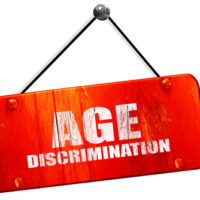What Type Of Remarks Reflect A Discriminatory Failure To Hire?

Federal and Florida law prohibit employers from refusing to hire any individual because of his or her race, color, national origin, sex, pregnancy, religion, disability, or age. Although it is sometimes difficult for victims of a discriminatory failure to hire to have access to all of the information helpful in proving their case before a lawsuit is filed, a recent discriminatory failure to hire case brought by the U.S. Equal Employment Opportunity Commission (EEOC) illuminates the type of evidence that can arise out of the hiring process and be used in proving this type of discrimination case.
EEOC v. Seymour Midwest, LLC
In the case of EEOC v. Seymour Midwest, LLC, which was filed in the U.S. District Court, Northern District of Indiana, the EEOC claimed that Seymour Midwest, LLC (Seymour Midwest) failed to hire Steve Maril (Maril) because of his age in violation of the Age Discrimination in Employment Act (ADEA). After Maril submitted an application in response to Seymour Midwest’s ad stating that it was hiring a Senior Vice President of Sales, Seymour Midwest’s Executive Vice-President e-mailed questions to Maril, including a request that Maril confirm that he was in the company’s ideal age range of 45 to 53. The next day, Maril notified the Executive Vice-President that he was 58 and asked the Executive Vice-President if he wanted to continue the hiring process. In response, the Executive Vice-President stated that he was looking for a younger candidate and would get back to Maril if his parameters changed.
In a Consent Decree entered into on January 5, 2016, Seymour Midwest agreed to pay Maril $100,000 to resolve the case. Seymour Midwest also agreed to provide on-going training on equal employment topics, including an overview of the ADEA, to all employees with the authority to participate in hiring decisions.
As the Seymour Midwest case demonstrates, remarks made during the hiring process often provide the most compelling evidence of a discriminatory failure to hire. Blatant discriminatory remarks, like those in the Seymour Midwest, directly establishing impermissible discrimination in the hiring process are rare. However, direct evidence of discrimination is not necessary to prove an employment discrimination case and the absence of such evidence does not mean that the employer did not discriminate. Other types of remarks are more subtle and reflect that discrimination played an impermissible role in the hiring decision. Such remarks, especially when combined with other evidence such as the job candidate’s qualifications for the position, can be used to establish a discriminatory motive in the hiring process.
The types of remarks made during the hiring process that can be used to prove a discriminatory failure to hire include:
* Questions reflecting a discriminatory motive or bias, such as explicitly asking about the individual’s race, national origin, religion, or age, or asking questions designed to elicit information about the individual’s race, national origin, religion, or age.
* Remarks reflecting a discriminatory motive or bias, such as comments showing a preference for a particular race, color, national origin, sex, religion, or age with respect to the person hired for the position or the qualifications necessary for the position.
* Asking a female candidate whether she is pregnant, intends or wants to become pregnant, or intends or wants to have children.
* Asking a pregnant candidate about the timing of her maternity leave or child care arrangements.
* Inquiries about the individual’s disabled status, such as asking the candidate whether he or she suffers from any type of disability, or asking about the nature or severity of the candidate’s disability
* Remarks reflecting stereotypes about race, color, national origin, sex, pregnancy, religion, or age, such as comments about wanting to hire someone who is like or mirrors the employer’s customers, asking a female candidate whether she will be able to handle male employees or get tough with customers, asking a female or pregnant candidate whether she will prioritize child care responsibilities over her job, asking an older candidate whether he or she would be able to work with younger employees, or asking an older candidate whether he or she has the necessary stamina or energy for the position.
* Remarks reflecting a discriminatory corporate culture, such as comments about the company wanting more members of a particular protected class as supervisors or managers, needing new or younger blood, or seeking to cater to the discriminatory preferences of customers, or wanting younger workers.
We have extensive experience representing individuals who have been the victim of a discriminatory failure to hire and other types of discrimination in the workplace. If you believe that you have experienced discrimination in the hiring process, or have questions regarding discrimination in the hiring process, please contact our office for a free consultation.


 Close Menu
Close Menu